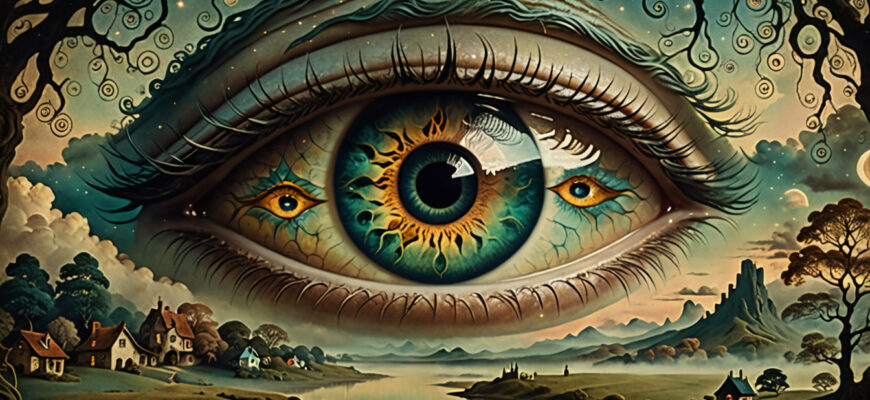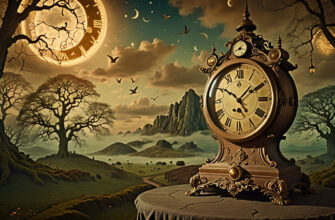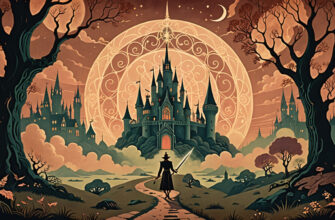Dreams about eyes often leave a lingering weight, as if the night tried to tell a secret not meant for the surface of day. These visions aren’t just random images—they trace deep lines between what’s seen and what remains hidden, a bridge between the conscious mind and that quieter, vaster place inside. When eyes enter a dreamscape, they jolt us awake to questions about vision on many levels: Are we really looking? What are we ready to see about ourselves, our lives, our spiritual selves? They’re never just about physical sight. Instead, they whisper ancient codes of insight and soul clarity that invite us to witness beyond appearances.
- Understanding Eye Dreams and Their Spiritual Significance
- Eye Dreams as Invitations to Spiritual Vision and Inner Clarity
- The Psychological and Psychic Dimensions of Eye Dreams
- Decoding the Symbolism of Specific Eye Dream Visions
- Practical Reflections and Healing Tools Inspired by Eye Dreams
- Harnessing Eye Dreams for Empowerment and Courage
Understanding Eye Dreams and Their Spiritual Significance
Eye dreams carry a remarkable weight because the eye itself carries a rich history of symbolism. In the language of dreams, eyes aren’t just organs of vision—they’re symbols of how we perceive truth and the nature of insight itself. When dreams spotlight eyes, they’re coaxing us to examine how we “see” deeper realities—truths that don’t always shout but speak softly in intuition, reflection, and spirit.
This symbolism stretches across spiritual traditions. For example, the eye might appear as a single, watchful orb, or a cluster of many eyes that evoke a sense of being watched or called to witness. Each variation unfolds a different message:
- Many Eyes suggest multiple perspectives, an invitation to notice how you’re being seen or how you see yourself through the gaze of others.
- Blindness or closed eyes often reflect feelings of confusion, avoidance, or a temporary disconnection from inner knowing.
- The third eye
What’s captivating about eye dreams is their ability to speak the soul’s language, a language felt rather than read. They engage symbol systems rooted in the psyche, offering more than surface-level interpretations. For instance, dreaming of your own eyes staring back at you in a mirror can feel like your soul inviting you to radical honesty, nudging you to face parts of yourself you may have been avoiding, or to glow in your authentic light without apology.
| Type of Eye Dream | Possible Spiritual Significance | Common Emotional Themes |
|---|---|---|
| Many Eyes Watching | Awareness of multiple perspectives, feeling witnessed, or anxiety over judgment | Exposure, vulnerability, validation-seeking |
| Blindness or Injured Eyes | Lost clarity, blocked intuition, invitation to healing | Confusion, fear, disconnection |
| Third Eye Opening | Spiritual awakening, heightened intuition, opening to cosmic truths | Curiosity, revelation, transformation |
Eye Dreams as Invitations to Spiritual Vision and Inner Clarity
These dreams offer a form of spiritual vision that isn’t about merely perceiving the world with physical eyes. Instead, they invite us to see through the lens of intuition and soul wisdom. It’s less about what the eyes capture, and more about what the spirit recognizes—the unseen energies, subtle messages, or hidden parts of ourselves crying out for acknowledgment.
Through this lens, eye dreams become messages from the psyche—a landscape where soul truths whisper softly, asking for attention. Imagine your dreams as check-ins from inner self-awareness, gently encouraging examination of areas where you might be ignoring your own feelings or stories.
Take for example a dream where your eyes feel heavy, blurred, or even closed. This could be your psyche’s way of signaling a need to pause, reflect, or heal before moving forward. Conversely, dreams where eyes open wide or a third eye awakens often mark moments of clarity, courage, and readiness to embrace deeper self-knowledge. These moments of breaking through illusions can be startling but ultimately liberating.
Eye dreams often dig into places where you might be hiding from your own truth or emotional reality. They highlight shadows and blind spots so your waking self can meet them without shame—offering a gentle invitation to reclaim your own story, power, and clarity.
The Psychological and Psychic Dimensions of Eye Dreams
Beyond symbolism, eye dreams serve as portals into psychological and psychic territories often steeped in vulnerability and empowerment. Seen through a trauma-informed lens, eyes in dreams become windows into parts of the self that carry wounds or nervous tension. They signal spaces where healing is not just necessary, but possible.
Adding a feminist perspective enriches this view by supporting the reclaiming of vision and power. Eye dreams may appear to challenge outdated narratives that have clouded self-expression or diminished autonomy. Instead, they offer a pathway to reclaim what was once silenced—whether that’s your intuition, your boundary-setting abilities, or your right to see and be seen on your own terms.
Cultural contexts play a vital role in shaping the way eye symbolism appears in dreams. From protective “evil eye” talismans in Mediterranean cultures to Indigenous teachings where eyes symbolize discernment rather than emotional reaction, these layers deepen the meanings and show us how interconnected we are with ancestral wisdom and collective stories.
In the dream realm, eyes also function as guardians. They act like psychic sentinels, signaling when energy feels unsafe or when boundaries need to be drawn. This dimension of psychic protection crops up frequently in experiences of feeling watched or under scrutiny in dreams, reminding us that our subconscious knows the importance of shielding and safeguarding our inner world.
Decoding the Symbolism of Specific Eye Dream Visions
Eyes show up in dreams loaded with meaning—sometimes they stare back with an unsettling intensity, other times they’re clouded or injured, begging for attention. What does it mean when you’re haunted by a gaze that feels omnipresent? A swarm of eyes watching can mimic that sensation of being everywhere at once or caught under the heavy weight of scrutiny. This multiplicity often points to layers of perspective pressing in, reminding you that many truths exist and perhaps you’re called to witness not just your story, but the stories of others too.
Dreams where vision fails, like blindness or partial sight, tend to carry a weighted vulnerability. They can echo moments when life feels dark, confusing, or when intuition seems muffled. Losing the ability to see in a dream might represent fear of the unknown or an internal dimming. Yet these dreams also whisper about inner darkness—not as punishment, but as unlit corners of your psyche yearning for gentle exploration.
The mystical third eye, often envisioned hovering between the brows, signals the soul’s readiness to awaken beyond ordinary perception. An open third eye can feel electrifying, a spiritual key swinging wide to experience expanded awareness. It signals a breakthrough in sensing truths you can’t yet fully put into words—an invitation to trust your inner visions, psychic nudges, and the wisdom flowing beneath surface thinking. If the third eye aches or closes, it may indicate blocks or emotional resistance, hinting at a personal crossroads in your spiritual journey.
Tears streaming from the eyes in dreams, or seeing eye injuries, tap into the body’s deep emotional ledger. Tears aren’t just sadness—they’re a release valve for stored grief, trauma, or long-held wounds. Painful vision or eye injury in dreams can awaken the body’s memory, surfacing moments you’ve tucked away or denied. This somatic story, carried through dreams, often calls for compassionate witness and the courage to confront uncomfortable feelings with openness instead of shame.
Encountering the loss of sight or the injury of an eye reflects intense shadow work underway. These dreams ask for embracing trauma, no matter how raw or unsettling, as essential to healing. The eye’s injury in sleep can symbolize parts of the self that have been “blinded” by trauma or societal erasure, especially when viewed through a queer and feminist lens. Through this painful vision, the dream urges reclaiming power—when you face your shadows, healing layers begin to unfold, and the path to wholeness becomes visible.
Practical Reflections and Healing Tools Inspired by Eye Dreams
When eye dreams nudge with urgent messages, reflective journaling becomes a sacred ritual to untangle their meanings. Questions to sit with include:
- What feelings swirled during the dream—fear, curiosity, shame, or awe?
- Which relationships or life areas seemed spotlighted by these dream-visions?
- Did the dream show clarity or confusion about what you saw?
- Are there aspects of yourself or your story you’ve yet to embrace?
Mindfulness practices tuned specifically to vision and inner perception help ground these nocturnal experiences into daily life. A simple meditation focusing on the soothing rhythm of your breath while softly visualizing an eye opening or closing can build trust in the flow of insight. This practice sharpens attention to the subtle messages that intuition carries.
Dreamwork rituals empower turning night visions into powerful tools of self-knowledge. After waking, try to reconstruct the dream in detail, speak it out loud, or share it with a trusted friend. Engaging the body through movement—like gentle stretching or dance—can unlock emotional energy tied to these images, making room for fresh insights.
Creative expression acts as a channel for processing eye dreams. Drawing eyes, writing letters to yourself from the dream’s perspective, or even embodying the feeling through movement can translate the language of symbols into personal meaning. These acts open up dialogue between conscious mind and unconscious depths.
Insights from eye dreams often underscore the need for setting energetic boundaries and practicing psychic protection. Building personal shields—whether through visualization, grounding rituals, or invoking affirmations—creates space to safely navigate the vulnerabilities these visions reveal. This sacred boundary-setting is an act of self-respect and empowerment.
Harnessing Eye Dreams for Empowerment and Courage
Trusting what the inner eye reveals means owning your unique vision without hesitation. These dreams ask you to lean into the truths that might feel fragile or unsettling because within them lies the raw material of transformation. Vulnerability exposed in these nocturnal messages isn’t weakness—it’s the doorway to integration and wholeness.
Moving toward wholeness requires courage to embrace vulnerability without recoil. The act of seeing, whether clear or obscured, is itself an act of bravery—a willingness to show up for all parts of yourself. This courage ripples outward, reshaping how you relate to the world and to yourself through a queer and feminist lens that honors intersectional healing.
When healing your vision, you step into the collective journey for liberation. Your unfolding clarity ties into broader movements reclaiming autonomy, dismantling oppressive narratives, and redefining beauty and power on your terms. These dreams, while deeply personal, pulse with collective rhythms of queer and feminist liberation.
Remember this: you were born for this sight. Your vision, unique and potent, carries the seeds of change—for yourself and the world around you.








